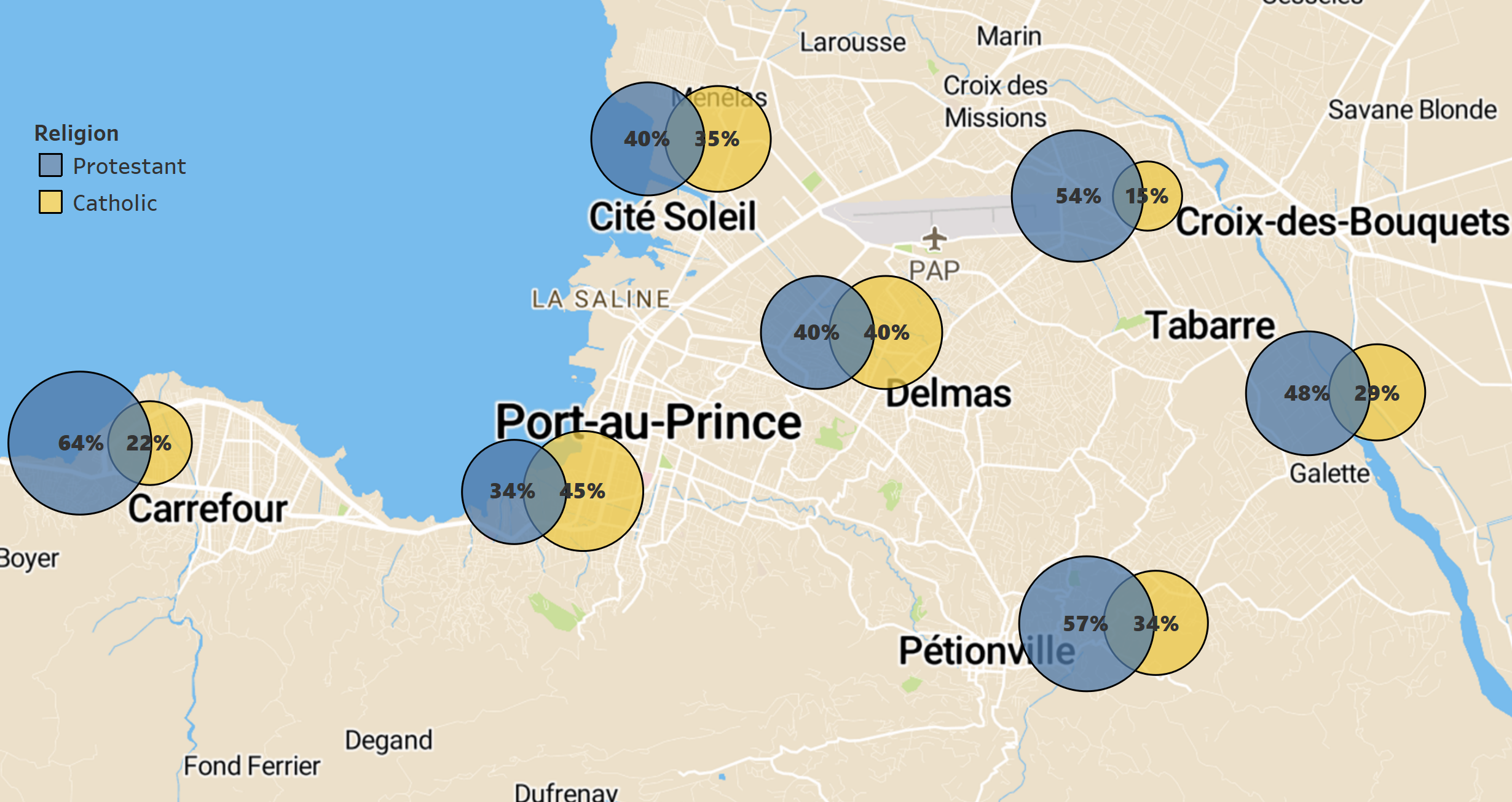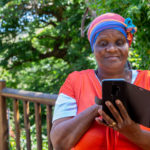Religion has always played an important role in Haitian life. At no time are the multiple and interwoven layers of religion in Haiti more on display than during Easter week. We will leave it to Social Science scholars to debate the extent to which socio-economic conditions, urbanization, natural catastrophes and ensuing relief efforts have reshaped the country’s, including Port-au-Prince’s, religious landscape, if at all.
In conducting our survey in November and December 2018 , we wanted to take a snapshot, albeit superficial, of religious attitudes and practices in and around Port-au-Prince and their impact on lifestyle and economic choices. Here are some highlights of what we found:
- Only 35% of the Port-au-Prince area identifies as Catholic. This is in sharp contrast to most publicly available data that have pegged the percentage of Catholics in the country at anywhere between 60% and 80%
- A plurality of Port-au-Prince area dwellers, 46%, identifies as Protestant
- 17% of respondents reported not being affiliated with any religion. That percentage is 27% among men and 39% among young men aged 15 to 24
- Only 2% of respondents identify Vodou as their religion
- The mix of religious affiliations seems to vary across communes. The map below shows the percentage of Catholics and Protestants in the seven communes in and around Port-au-Prince

- About 50% of Catholics reported attending church at least once in the previous week. That percentage compares to 62% for Protestants
- Catholics are twice more likely to smoke than Protestants and 20% more likely to consume alcohol
- 42% of those identifying as Protestant reported being self-employed compared to 33% of Catholics
- 45% of those identifying as Protestant reported owning a bank account compared to 35% of Catholics
Our data seem to suggest that Protestants exhibit better health and financial habits than Catholics, at least in and around Port-au-Prince. However, our survey sample is not nearly large enough to lead to definitive conclusions on these issues, which may be worth exploring further by subject matter experts.
The table below summarizes how those who identify as Catholic, Protestant, and non-affiliated compare across a number of lifestyle and demographic categories. For more statistics related to our survey in and around Port-au-Prince, please click below to explore our interactive dashboards.
| All | Catholic | Protestant | Non-Affiliated | |
|---|---|---|---|---|
| Percentage of respondents in each group * | - | 35% | 46% | 17% |
| Split of women respondents within each respective group | 49% | 55% | 56% | 19% |
| Average age of respondents | 36 | 37 | 36 | 31 |
| Percentage who did not attend church in the previous week | 44% | 49% | 38% | N/A |
| Percentage who attended church once in the previous week | 32% | 38% | 28% | N/A |
| Percentage who attended church 2-4 days in the previous week | 20% | 9% | 30% | N/A |
| Percentage who attended church 5-7 days in the previous week | 4% | 4% | 4% | N/A |
| Percentage who have children | 54% | 58% | 56% | 38% |
| Percentage who live with a spouse/partner | 36% | 36% | 40% | 24% |
| Percentage who smoked in the previous month | 9% | 9% | 4% | 17% |
| Percentage who consumed alcohol in the previous month | 68% | 72% | 60% | 80% |
| Percentage who are unemployed | 17% | 18% | 16% | 19% |
| Percentage who are self-employed | 36% | 33% | 42% | 24% |
| Percentage who own a bank account | 43% | 35% | 45% | 55% |
* An additional 2% of respondents identify Vodou as their religion

